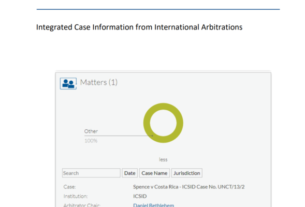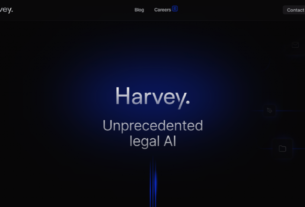With the Clio Cloud Conference kicking off live Monday for the first time since 2019, and with this year marking the conference’s 10th anniversary, I caught up earlier today with Clio founder and CEO Jack Newton.
Some of what we talked about is under embargo until Monday, when Clio will be announcing new products and releasing its latest Legal Trends Report.
But Newton did share some of his thoughts about the state of the legal industry and the legal tech market. Here is a quick recap.
State of the Legal Profession
As we continue to emerge from the pandemic, I asked Newton how he sizes up the legal profession today and what he sees as the impact of the pandemic on the practice of law.
He said that a major theme of his keynote address Monday will be “antifragility” – the concept developed by Nassim Nicholas Taleb in his book, Antifragile, that certain systems have the capability to thrive in the face of high-impact stressors and shocks.
The legal profession has proven itself to be such a system, Newton said, not just surviving the pandemic, but actually getting better as a result of it.
Many law firms emerged from the pandemic better and stronger than before, he said. They have proven that no matter how challenging the environment going forward, no matter what stressors they face, they can thrive.
“As we emerge from COVID, the biggest surprise is how adaptable legal proved to be,” he said. “There is no question we are in a better pot than we were pre-COVID.”
This holds true for new forms of stressors, he said, pointing to the example of regulatory reform in states such as Arizona and Utah. While many lawyers view the prospect of reregulation as a stressor, there is a whole class of innovative law firms that can and will embrace this type of change.
Legal Trends Report
The findings of this year’s Legal Trends Report provide evidence of the profession’s antifragility, Newton said.
The report will show a boom over the last two years in virtually every KPI related to law firm performance, with greater numbers of matters being created, greater numbers of hours billed, and collections up 40%.
“We are seeing an industry that’s thriving and experiencing an unprecedented surge in demand,” he said.
Newton attributes the increase in collections to the broader use of electronic payments. At last year’s ClioCon, Clio introduced its own e-payments technology, Clio Payments, which Newton at the time called the most important product release since the company’s debut 13 years earlier.
When Clio first introduced the Legal Trends Report at the 2016 ClioCon, the most shocking revelation was that firms had a realization rate of just 28%. This year’s report will show that has gone up to 33%.
It is still not where it needs to be, Newton told me, but it nevertheless an almost 20% relative improvement.
Validation of the Cloud
The Legal Trends Report will also provide data that further validates the positive impact of cloud-based practice management systems, Newton said.
In every way from lawyers’ mental health to job satisfaction to profitability, lawyers credit the cloud for improving their practices.
And, needless to say, when the pandemic hit, the firms that already had a strong cloud infrastructure in place were the ones that were able to hit the ground running and demonstrate the greatest resilience.
Remaining Client Centered
Two years ago, Newton published a book, The Client Centered Law Firm, and he said that the client-centered approach remains the north star for law firms as they navigate change.
“You just need to talk to your clients and understand what they want.”
The Legal Trends Report offers insights into what clients consider important or not in a lawyer. While the top factor in choosing a lawyer is reviews and recommendations, the one thing clients care least about is whether the lawyer has a physical office.
Maintaining a client focus also ties into the antifragility theme, Newton said.
“I think about the antifragile mindset as thinking about all these stressors as positive ways to evolve and shifting client expectations is one of the stressors lawyers need to think about.”
Clio’s Place in the Legal Tech Landscape
Since the last live ClioCon in 2019, the landscape for law practice management technology has changed dramatically, with a number of acquisitions and wrap-ups and significant private equity investment.
Given these changes, I asked Newton where Clio fits today within this evolving landscape.
He pointed out (and I agree) that the real evolution in this landscape was set in motion 14 years ago when Clio launched the first major cloud-based practice management program.
While it seemed like a radical idea at the time, Newton said, he always believed and predicted that everything that can be in the cloud would be in the cloud.
“All the innovation that’s happening in legal is happening in the cloud,” he said.
Clio “created the cloud practice management space and we’re still defining that space.”
He said that while Clio has a lot of imitators, imitation is the sincerest form of flattery. He suggested that many of his competitors will be watching his keynote Monday to come up with ideas for their own product roadmaps.
With regard to investment in the space, he said that investors have come to realize that practice management is truly the hub of where a law firm works, and that is why they are so interested in those products.
Possibility of Going Public?
In an interview on my LawNext podcast last year, Newton discussed the potential for an IPO and said it “would be a natural milestone” in Clio’s evolution.
But this morning he said that, at least for this year, “the IPO window has been firmly slammed shut” by market events.
An IPO is still on the table for the future, he said, but only if the company believes it is the best thing for itself and its customers.
“We have no need to go public,” he said. “We are thriving with huge amounts of financial resources at our disposal.”
ClioCon Sets Records
I will be reporting more from ClioCon next week, including on product announcements that will be made there.
But one notable fact about this conference: It has broken prior attendance records, with more people attending this year than attended the last live conference in San Diego in 2019.
Over 2,000 people have registered to attend live, with another 1,000 attending virtually.
So stay tuned for more from ClioCon.


